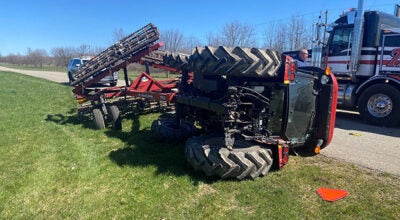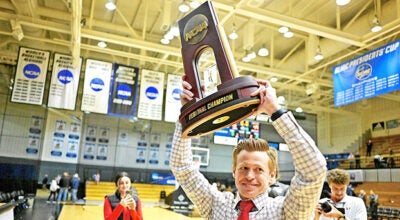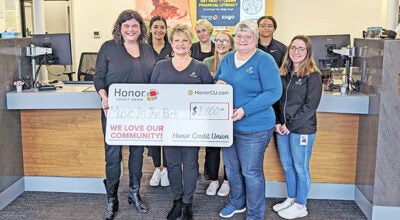Pheasants Forever and SMC team up for planting project
Published 10:29 am Friday, April 15, 2016
February’s “conservation conversation” between members of Cass County Pheasants Forever and students and staff with Southwestern Michigan College is beginning to bear fruit — and the county’s tiniest six-legged workers will be the main beneficiaries.
The organization and school met this week to lay out the groundwork for an upcoming seed planting project for a field outside the college campus at the intersection of Cherry Grove Road and Mathews Street. Using grant money from the national Pheasants Forever organization, members of the local organization and students from the college will work together to plant wildflowers, prairie grass and fruit trees designed to attract pollinating insects such as honey bees and butterflies, said Jeff Nelson, president of the Cass County Pheasants Forever.
“The project is intended to promote the importance of pollinators and to provide them with habitat because they are becoming endangered,” Nelson said.
Working with the 6.5 acre field, members and students will lay seeds for plants like sunflowers, black-eyed-susans, goldenrod and trees like wild plumb, crabapple and dogwood, Nelson said.
In addition to providing a space for pollinators to flourish, the grounds will be open to the public and could serve as a space for education on these types of essential insects, for both college and K-12 classrooms alike, Nelson said.
“It’s a lot different for students to read about pollinators versus coming out and looking at them and seeing what they’re all about,” he said.
Pheasants Forever and members of the college staff have been working to bring this project to life since Nelson met with Stacey Rocklin, an advisor for SMC’s agriculture program, and a few students from the college during an informal meeting of several local conservation agencies several months ago.
Students have played a large role in the project thus far, from helping with grant writing to developing plans for the grounds, Nelson said.
“We want the students to feel invested in the project, to feel ownership of it,” Nelson said.
The president hopes to began planting within the next few weeks — though some of the plants will begin to emerge later this year, it should really start to blossom by next spring, Nelson said.






